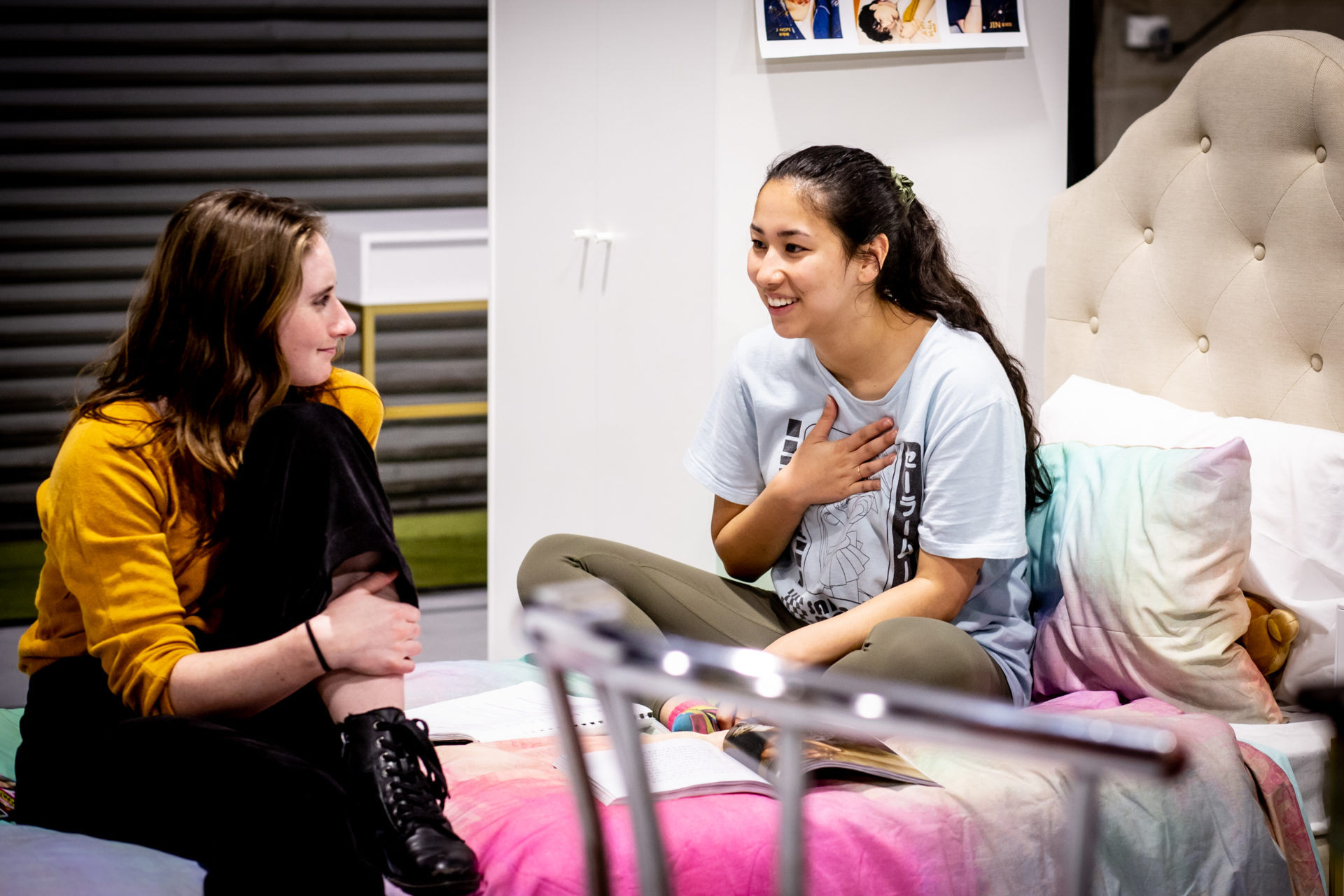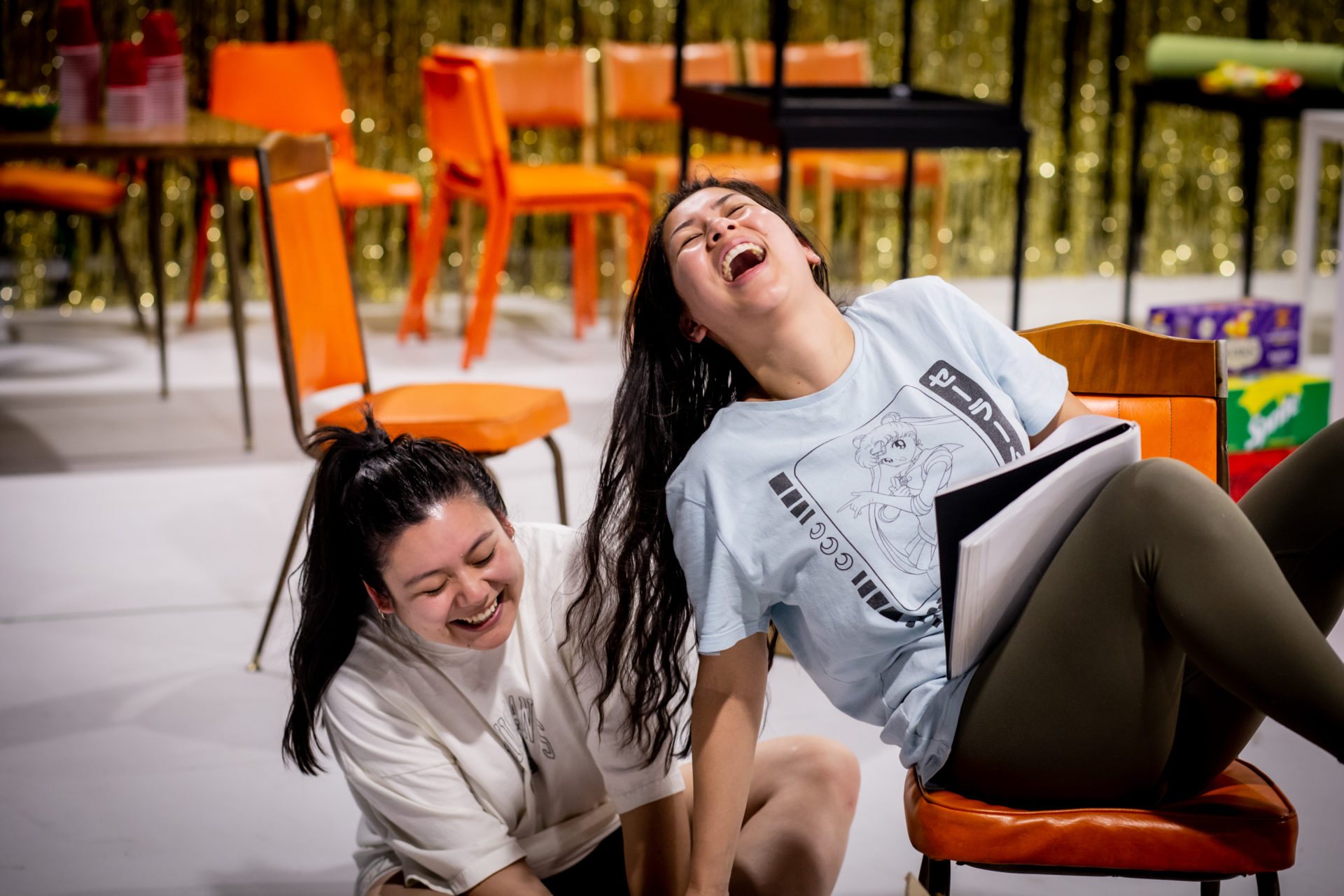Meet Flinders University Drama Centre Graduate Elvy-Lee Quici
By Tamara Montina
Hi Elvy-Lee, tell us all about yourself.
Hello! I’m Elvy-Lee Quici, I’m 21 and just about to graduate from Flinders Drama Centre later this year. This year has been a hectic one as I started the year off performing in Thornton Wilder’s The Skin of Our Teeth, working with Wayne Harrison AM for our mid-year production, and now my first mainstage debut in Single Asian Female for State Theatre Company South Australia!

Through training at Flinders University Drama Centre, you have had the opportunity to play an eclectic range of characters like Masha in The Seagull by Benedict Andrews, and Lady Macbeth in Shakespeare’s Macbeth. What motivated you to undertake acting and performing arts?
It started when I was around 5 or 6 years old where I used to religiously watch Paris by Night which is a very famous Vietnamese music show series and adored Jerry Lewis films, and I also started playing the piano then and with that I loved singing, dancing, and acting, so straight away I knew I wanted to be performer. Drama throughout school was the one of the subjects that I actually enjoyed and found a lot of artistic expression in, but I never thought about actually becoming an actor. I originally wanted to become a K-Pop idol from 12-16 and I nearly auditioned for the big companies but realised that it was going to be a very hard and the likelihood [of getting accepted] wouldn’t be very high. It wasn’t until year 12 of high school where acting started to become more serious to me and that I could do something in that field, but my drama teacher Mrs. Becker encouraged me to audition for Flinders Drama Centre and that’s where it all began!
What does it mean to you to be a single Asian female in the context of Michelle Law’s play Single Asian Female?
For me, being a Single Asian Female, reading this play hit so close to home (as I’m sure it will for lots of people) as it is so universal, but you really have a deeper understanding of domesticity through the lens of an Asian-Australian family, and it was really the first time I’ve ever felt seen. I’ve personally never seen this type of representation in theatre before, and I feel so honoured to be performing this show. It is so real in the way it unpacks the struggles of these three Asian-Australian women from different generations who are all at conflicting stages in their lives, and it’s made me truly recognise and appreciate my mother more and more, and all the women in my family who have been in those positions.
n this production, you play Mei, a displaced teen experiencing the throes of an identity crisis surrounding her Asian heritage. Growing up, what was your experience navigating conversations about your cultural identity?
When I was 8 years old, I felt like I was at my peak of being Asian and it was great, but I went through a phase when I was in my early to mid-teens when puberty started and my body was changing, and I would question my cultural identity. As I’m half Italian, half Vietnamese, I would ask myself, “Which one am I? Italian or Vietnamese? I can’t be both, it’s too confusing.” I felt that I didn’t completely fit in with my peers in high school, and slowly lost touch of my Asian heritage, wanting to be more Western. I think drama school really changed that perspective for me and just growing up in general, understanding more at a deeper level has really opened my eyes to what’s important.

How have you prepared for your role in this production? What is the biggest challenge about taking on this role?
I’ve been trying to process that I am actually doing this show for most of this year so that’s been a big mental preparation step. I’ve been given a lot of great advice and encouragement especially from my amazing teacher Mr. Renato Musolino, which has been helpful to have in the back of my mind during rehearsals. The biggest challenge for me is about how much I want this show and especially playing Mei to speak truthfully to its younger audiences and show how real these struggles are, even if they seem small now but are so large at that age. It’s very confusing and confronting having to deal with these things in life but wanting to do it justice and show realistic representation is a challenge I’m excited to face.
Why is it important to platform diverse voices in the Arts and media?
It’s important to platform diverse voices because Australia is a multicultural country, but we don’t see is enough proper representation of ethnicities and cultures on the Australian stage, film, and television. We don’t want to see a stereotype nor be the token ethnic person, so pushing for real diversity and inclusivity is very significant in the Arts and media world, as it allows proper display of what Australia is today. With the world ever-so-changing, we are fixing this matter but very slowly. I think it’s an important conversation to have, along with many important conversations, to fix a lot of gaps missing in the Arts/media industry.
What message would you like the audience to take away from their viewing of Single Asian Female?
There are so many things to take away from it, but I’d say that this show is a massive love letter to mums, it’s a play about family and culture and how we treat others who seem different. Asian-Australians are finally getting the opportunity to see themselves on stage and getting the acknowledgement and recognition that seems to be very looked over. It’s powerful and moving and incredibly universal, and it gives you a moment to consider your relationships with your own cultures and identities.
Single Asian Female by Michelle Law is playing 4-19 November at the Dunstan Playhouse.